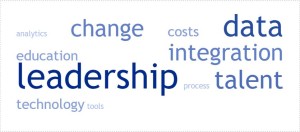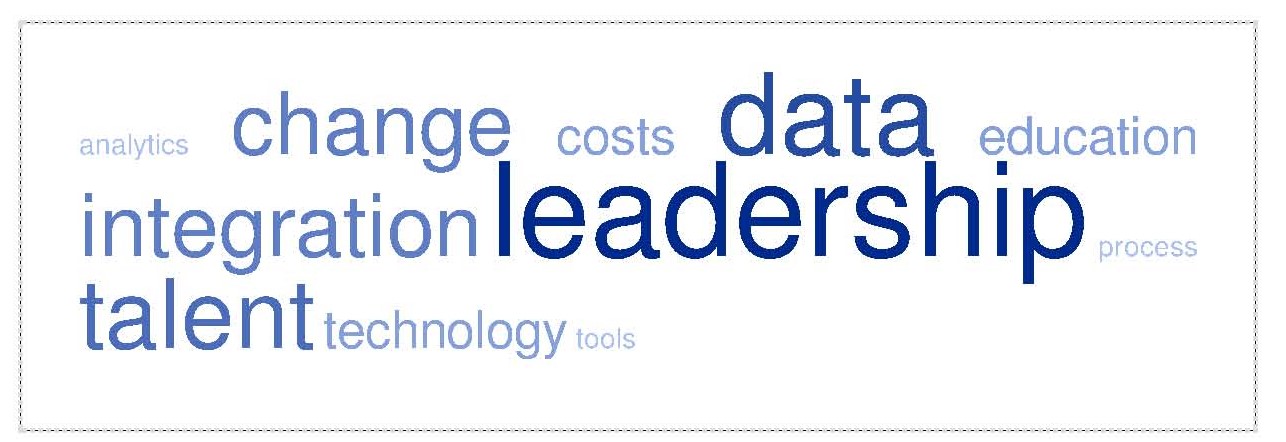Challenges to Implementing Healthcare Analytics
Category : Healthcare Leadership
Executive Summary
During a workshop at the Healthcare Analytics Symposium held in Chicago in July, a study was conducted by the Healthcare Center of Excellence (healthcarecoe.org) to determine what the participants perceived were the top challenges they faced in implementing analytics at their healthcare organization. The participants included people from all levels of healthcare organizations from locations across the country. Each participant was asked to identify up to 5 challenges they faced in implementing healthcare analytics. They were also asked to then work in a group and develop 3 solutions to overcome the top challenges they identified. While the challenges facing healthcare analytics implementation may not surprise anyone, the ranking of the challenges might receive some unexpected attention.
Methodology & Results
In the analysis phase, the challenges were classified into 10 categories for further examination. Those categories were:
analytics tools | change management | costs | data management | education | integration | leadership | process | talent | technology
The top 3 categories were leadership (29%), data management (18%) and talent (14%).
Overall, the distribution of responses was decided pointed at leadership.
Even more surprising was the source of these comments. As part of the study, the participants were asked to include their title on the survey form they turned in. The titles were summarized into general categories which indicated the responses included all levels of the healthcare organization, from C-Level to the Analyst.
Finally, as previously mentioned, the participants were asked to develop solutions for their greatest challenges as a group. Although leadership at 54% was the top solution by a wide margin, the order of the other solution categories changed substantially with talent at 22% moving to the second spot and process at 10% moving to the third spot. Data came in fourth at 9%.
Conclusions
Although the results weren’t surprising, the strength of the argument for better executive leadership skills in healthcare was. Many outside of physical healthcare organizations can see the problem and when you talk to people inside the organizations, they wholeheartedly agree. It’s like the 800-pound gorilla that no one really wants to talk about, but as soon as it’s mentioned everyone starts nodding in agreement.

This is by no way meant to disparage current healthcare leaders. They have been dealt a tough hand. No other industry has been asked to make such dramatic changes in such a short period of time. It’s like asking a major electronics retailer to also become a fine French restaurant within 12 months. In less than a decade they’ve had to convert to electronic records, change their revenue model (requiring new analytical functions in the process), prepare for a new coding scheme and lead a constituency that can be resistant to change. Most healthcare executives were not trained to handle such huge business issues. The good news is that leadership can be learned. It won’t happen overnight, but it needs to start right now if success is the desired outcome.
Professor J. Bryan Bennett
Executive Director
Healthcare Center of Excellence
